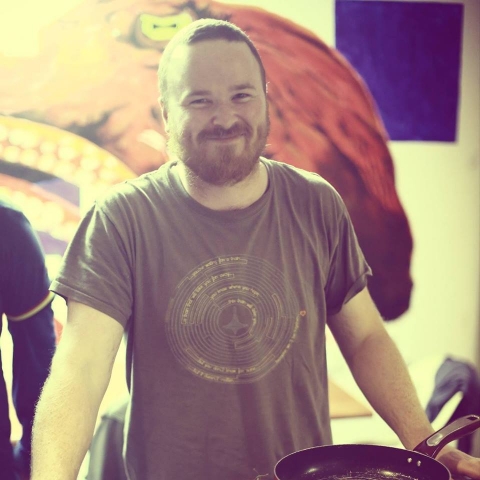This year’s HW conference was certainly interesting. Here are my impressions from the event.
The Atmosphere
Many people were expecting an all out riot at the conference, but there was no revolt or disruptive activity. All attendees were very polite and well behaved despite a palpable skepticism in the crowd. But just because they didn’t scream and shout doesn’t mean that they were convinced by HW’s story. There was a whole lot of eye rolling and head shaking going on in the audience, and the discussions during coffee breaks reinforced those sentiments.
It seemed that a large focus of the conference was to pacify an angry crowd with empty words and to distract us with music and booze. (They do throw a good party!) It’s all well and good to tell us a nice story and reassure a room full of hostel owners that HW really cares about us, but that story seems a bit disingenuous.
If you want to see where HW’s interests really lie, take a look at the document put out by the UK Office of Fair Trading when they determined that the HW/HB merger did not constitute a monopoly. HW clearly wants to be a hotel booking site. HW believe that travelers are “agnostic” towards hostels, so HW focuses on pushing other property types with higher commissions. The smaller amount of money that they do get from hostels is supplemented with schemes like Elevate.
HW’s Claims
For better or for worse, Feargal Mooney and other HW representatives claimed all of the following during the conference:
- Hostel owners are too emotional and take our businesses too personally. We should just focus on the data.
- HW think that hostel owners have changed. They were once a collection of passionate travelers who transformed their passion into a business and who work for the love of travel. Now they are a collection of businessmen who focus on profit margins and paychecks for the love of money. (Are they right?)
- By listing hotels and other properties next to hostels it will INCREASE bookings in hostels.
- HW have no interest in pushing bookings in other types of properties than hostels.
- Just a 3% increase in bookings will cover the increased commissions and earn us more money than we make now. (Note: This doesn’t mean 3% more guests, just 3% more bookings THROUGH HW. With a simple AdWord campaign for your own brand name - that you pay for with the increased commissions - they can simply convert your direct bookings into HW bookings and justify their need for more money. Brilliant!)
- HW are aware that the industry feels that they have abandoned us and that they don’t care about hostels. To contradict this, they assured us that they are, in fact, “all about hostels.”
- There are roughly 11,000 hostels listed on HW. All other properties (2/3 of their inventory) are other types of accommodation.
- HW will create a $500,000 Strategic Development Fund to develop the hostel sector. They need suggestions from us for how to spend it in the most productive way. (Some attendees suggested contributing financially to Hostel Management – an excellent idea!)
- Korean is the 2nd most used language on HW, the 6th biggest customer base, and the fastest growing market for HW. They will continue to focus on developing the Asian market in general.
- Due to popular demand (and loss of clients) HW may incorporate a channel manager into BPO. No timeframe has been set yet.
- All of the questions that were not answered during the Q&A session will be answered and sent out to hostels through the back office. (Questions were submitted via the internet, and selected questions were posed by a moderator. They wisely avoided passing around a microphone again this year. I was actually surprised how many of the tough questions WERE posed on stage, although there were far fewer direct answers than I would have liked)
- Feargal apologized several times for how poorly the new contract was handled and how it was presented to hostels. (He did not apologize for using the exact same tactics for the increased commissions.)
- The “HW Buddy” changed for many properties recently because new members were added to the team to handle the workload after the merger with HB. Depending on whether it’s working or not, your Buddy may change again in about 6 months.
- Your “HW Buddy” usually only finds out about policy changes a day or two before you do, even though their name is on the email. (They probably had nothing to do with the decision, nor do they have any control over the policies, so don’t shoot the messenger.)
- 15% of all hostel bookings now come through the Elevate program.
- HW are spending 25€ million this year on paid search marketing compared to 10€ million in 2012, and they currently employ 15 people who work full time on PPC campaigns.
- HW’s cost of acquisitions have gone up due to Booking/Expedia entering the hostel market.
- HW believe the commission increase was necessary and justified, and they have no intention of reducing it.
- Feargal believes that HW offers such good value that they will still be competitive even if they end up with higher prices than their competitors.
- HW’s paid search marketing through Google and TripAdvisor is so expensive that don’t make any profit the first time someone clicks their ad and books with them. A guest has to return to make a second booking before HW can make any money from them. (By this time the hostels already have the opportunity to educate that guest)
- HW believe that they are not responsible for OUR increased costs of acquisition.
Examination of OUR Increased Cost of Customer Acquisition
Despite Mr. Mooney’s claims that our costs of customer acquisition have not gone up because of HW, the facts show just the opposite. As a direct result of HW’s actions our costs have gone up in the following ways:
1) Commissions increased by 20% for every booking on all WRI sites.
2) HW eliminated the booking fee for guests, and now hostels have to absorb that cost.
3) HW are buying our brand names for paid search campaigns in order to poach direct bookings (If we’re lucky we’ll still get the booking and only reduce our revenue by the 12% commission. If we’re not lucky, HW will sell them another property – eliminating our revenue completely from what would otherwise have been a direct booking.)
4) Our own paid search marketing costs increase because we have to bid against all WRI websites for our own brand names.
5) Since HW removed the algorithm that used to put hostels first in the search results, we have to pay them more in order for our listings to even be visible among hotels and other properties. Now we pay in the form of:
-Paid Featured Listings above the search results
-The Hostelworld Recommends program, where HW's exclusive allocation cannot be sold elsewhere for lower commissions
-Further inflated commissions through the Elevate program
All of the items above were caused by WRI’s business choices, and all of them result in higher costs for hostels.
Productive Networking
As usual, the most valuable part of the conference was not the presentations, but rather the opportunity for networking. An independent meeting took place (outside of the conference) with representatives from national hostel associations around the world to discuss how they can work together and effectively organize the hostel industry. Various strategies were discussed regarding concrete steps that can be taken to reduce our reliance on 3rd party booking sites and increase direct bookings.
They are creating a platform for open communication among the various associations to ensure that the hostel industry can speak with one collective and representative voice whenever issues arise. This will help our entire industry to plan joint strategies, act together, and to be much stronger in the face of any opposition. I am very pleased by this move towards productive collaboration.
Indications about the Future of HW
Will HW cease to be a relevant booking site for hostels in the near future?
A recurring theme at the conference was the need to compete with Booking.com. This was repeated with such desperation that it almost seemed like an obsession. They need to be seen as a viable competitor for Booking, and they want to convince us to help them with this goal. This conflicted sharply with HW’s reassurances that they are a HOSTEL booking site, but it makes sense from a strategic financial standpoint.
WRI is owned by a venture capital company whose purpose is to buy a business, inflate its perceived value, and then sell it off for a maximum profit. On average, WRI’s owners tend to sell off their investments within 5-7 years of their initial purchase. WRI was purchased in December of 2009, so they will probably sell off HW within 1-3 years from now. That’s a very important prospect for our industry to consider! 1-3 years is not a long time from now. It raises the question, will HW even remain relevant to hostels in the near future?
Which company is most likely to buy WRI? Probably Booking.com or Expedia, assuming that HW can convince them that Hostelworld is a real competitor. As WRI have already demonstrated, it is easier to buy a competitor than to compete with them.
If/when Booking buys WRI we can count on commissions increasing to at least 15% (or more) without any strong alternative for selling our beds online. Hostels will be buried among even more hotels and other properties, making it even harder for travelers to find us. If we wait until that time to take action, then we’re going to find ourselves like rats fleeing a sinking ship with nowhere to go. We need to reduce our reliance on hostel booking sites NOW (before this purchase happens) and encourage all travelers to book directly with the hostels.





Log in to join discussion